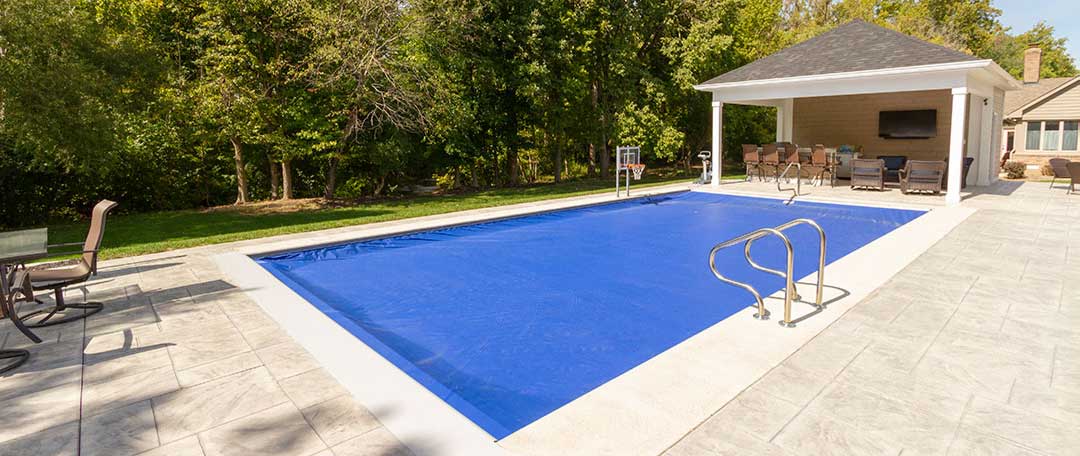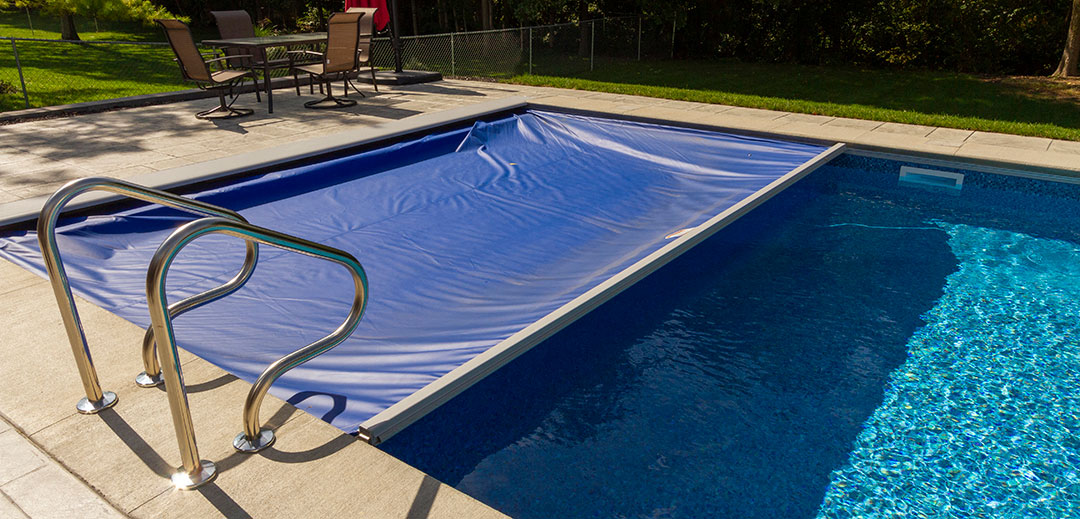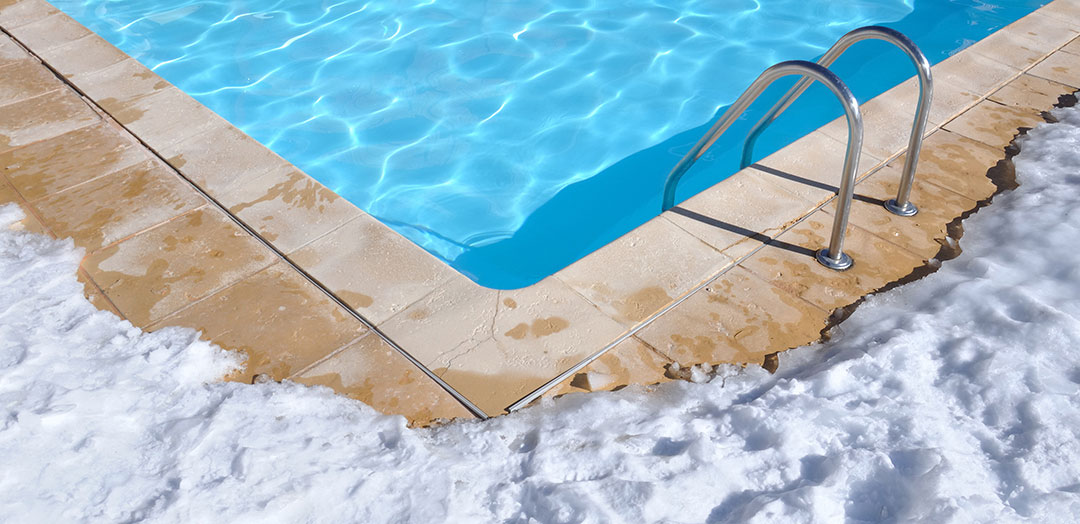THURSDAY, MARCH 25, 2021
Winterize Your Pool: Protect Your Pool and Spa from Freeze Damage

Your pool and spa are big investments, so it’s important to maintain them year-round. In this blog, we’ll go over the winterization basics for inground pools and above ground pools, as well as touch on spas and recommended products.
- If your area is subject to frequent hard freezes, properly winterize your pool equipment and piping then cover the pool.
- In milder climates, keep your pump running as you normally would to keep the pool water from freezing.
- Above Ground Pools are particularly susceptible to winter damage and require extra care and attention.
- Spas should be enjoyed throughout the winter months. Closing your spa is not recommended unless it will not be used for at least three months (i.e. in a vacation home).
Pool Fact: Water chemistry and safety are equally important in winter and summer.
How to Close an Inground Swimming Pool
Follow these 6 steps to close your pool in areas with frequent hard freezes:
- Properly balance pool water. Also add shock treatment (chlorinated or non-chlorinated).
- Lower the water level to below the skimmer.
- Clear pipes and equipment of water using a blower or compressor and plug the pipes at the pool.
- Add swimming pool antifreeze to the lines to prevent freezing.
- Place a Gizzmo* (or similar device) in the skimmer to seal it and absorb pressure from ice. Ask your local Pool Retailer for more details on the Gizzmo for your skimmer.
- Install your safety cover or winter tarp cover using water tubes to secure.
Rain and snow can add hundreds of pounds of pressure to your winter pool cover. A pool cover pump will keep standing water from weighing it down and will extend the life of your cover.
To prepare your pool for the winter in milder climates:
- Make sure that the pump is running during periods of below freezing temperatures.
- Keep the water properly balanced and sanitized throughout the off-season months.
- Some pool owners also choose to install a Winter Cover or Safety Cover.

Pool Fact
Pumps should be kept running during freezing temperatures or completely drained during the winter to avoid a risk of damage to the pump, filter, heater, pipes, and any other in-line equipment.
How to Close an Above Ground Swimming Pool
- Properly balance pool water. Also add shock treatment (chlorinated or non-chlorinated).
- When preparing to winterize the pool, do not drain water below the recommended level. NEVER DRAIN POOL COMPLETELY.
- Lower the water level to below the skimmer opening and plug returns in the pool. Install the skimmer faceplate cover.
- Clear pipes and equipment of water and insulate them. Remove and store your pump.
- Install the air pillow and then the pool cover
- Store your pump, hoses, and other in-line equipment that can be removed.
Common reasons why above ground pool walls could collapse or fail:
- The skimmer catches water which then freezes, causing the skimmer to become too heavy for the wall to support. This eventually causes the wall(s) to collapse.
- An ice expansion pushes out against the walls, causing the walls to buckle under the immense pressure and weight of the ice.
Spa Fact
Spas are designed to run and be enjoyed throughout the winter months. However, it is recommended that you lower the water temperature when the spa is not in use.

No Comments
Post a Comment |
|
Required
|
|
Required (Not Displayed)
|
|
Required
|
All comments are moderated and stripped of HTML.
|
|
|
|
|
|
NOTICE: This blog and website are made available by the publisher for educational and informational purposes only.
It is not be used as a substitute for competent insurance, legal, or tax advice from a licensed professional
in your state. By using this blog site you understand that there is no broker client relationship between
you and the blog and website publisher.
|